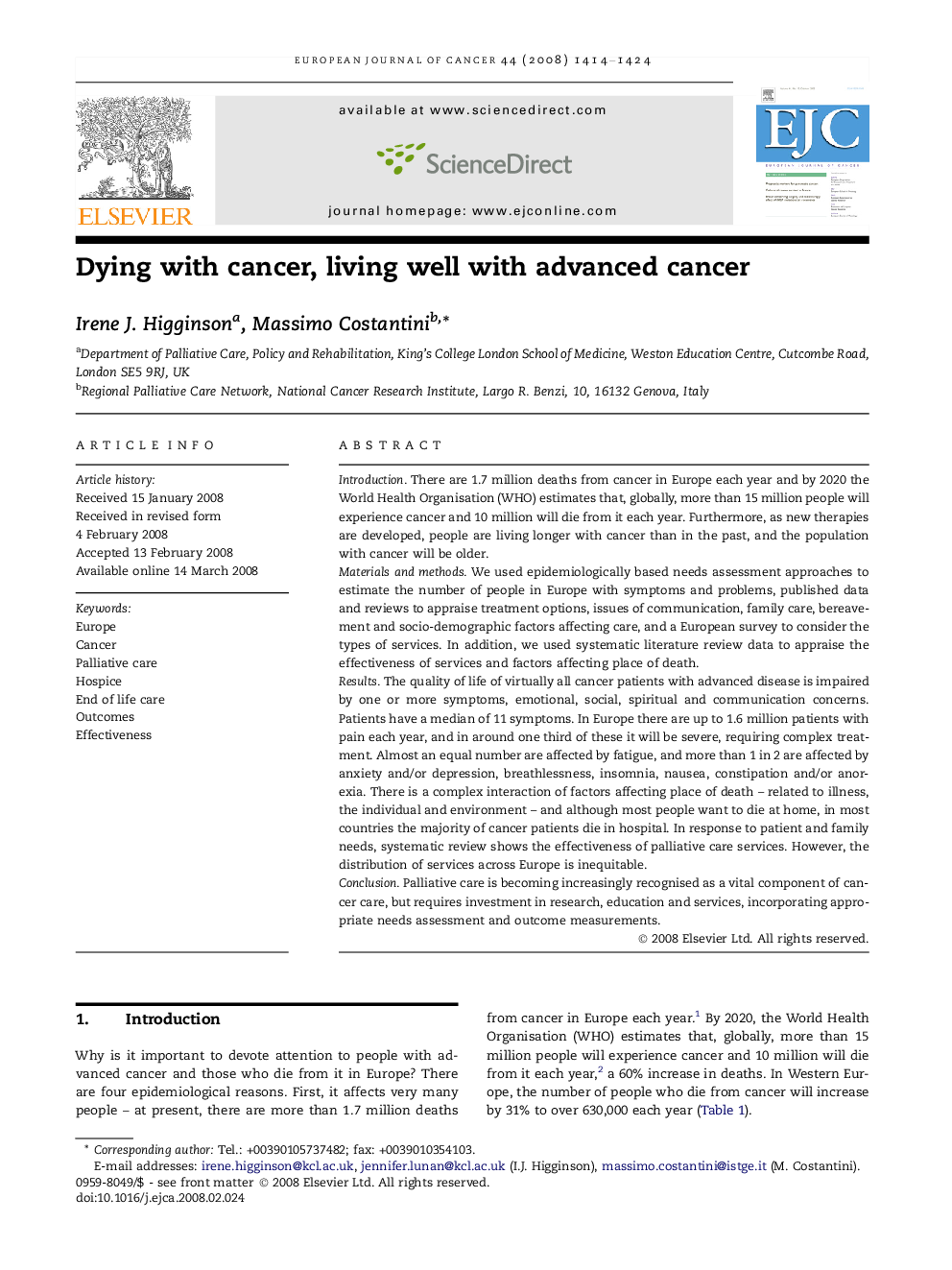| کد مقاله | کد نشریه | سال انتشار | مقاله انگلیسی | نسخه تمام متن |
|---|---|---|---|---|
| 2125734 | 1547247 | 2008 | 11 صفحه PDF | دانلود رایگان |

Introduction. There are 1.7 million deaths from cancer in Europe each year and by 2020 the World Health Organisation (WHO) estimates that, globally, more than 15 million people will experience cancer and 10 million will die from it each year. Furthermore, as new therapies are developed, people are living longer with cancer than in the past, and the population with cancer will be older.Materials and methods. We used epidemiologically based needs assessment approaches to estimate the number of people in Europe with symptoms and problems, published data and reviews to appraise treatment options, issues of communication, family care, bereavement and socio-demographic factors affecting care, and a European survey to consider the types of services. In addition, we used systematic literature review data to appraise the effectiveness of services and factors affecting place of death.Results. The quality of life of virtually all cancer patients with advanced disease is impaired by one or more symptoms, emotional, social, spiritual and communication concerns. Patients have a median of 11 symptoms. In Europe there are up to 1.6 million patients with pain each year, and in around one third of these it will be severe, requiring complex treatment. Almost an equal number are affected by fatigue, and more than 1 in 2 are affected by anxiety and/or depression, breathlessness, insomnia, nausea, constipation and/or anorexia. There is a complex interaction of factors affecting place of death – related to illness, the individual and environment – and although most people want to die at home, in most countries the majority of cancer patients die in hospital. In response to patient and family needs, systematic review shows the effectiveness of palliative care services. However, the distribution of services across Europe is inequitable.Conclusion. Palliative care is becoming increasingly recognised as a vital component of cancer care, but requires investment in research, education and services, incorporating appropriate needs assessment and outcome measurements.
Journal: European Journal of Cancer - Volume 44, Issue 10, July 2008, Pages 1414–1424